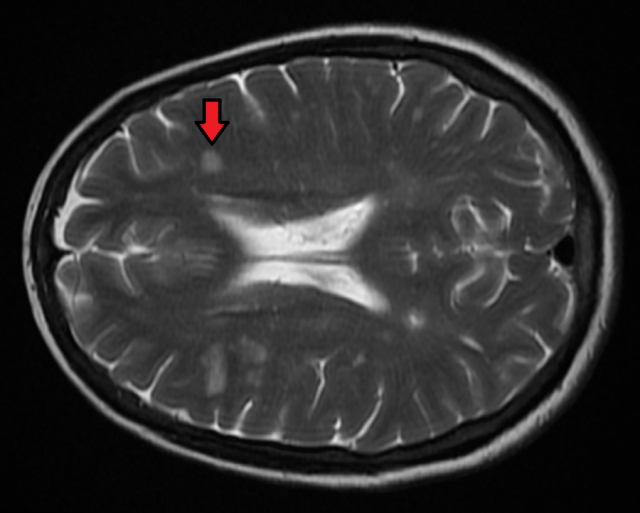Risky stem cell treatment halts MS in 70% of patients in small study
Ars Technica » Scientific Method 2016-06-13

MS brain lesion as seen on an MRI. (credit: James Heilman, MD)
By obliterating the broken immune systems of patients with severe forms of multiple sclerosis, then sowing fresh, defect-free systems with transplanted stem cells, researchers can thwart the degenerative autoimmune disease—but it comes at a price.
In a small phase II trial of 24 MS patients, the treatment halted or even reversed the disease in 70 percent of patients for three years after the transplant. Eight patients saw that improvement last for seven and a half years, researchers report in the Lancet. This means that some of those patients went from being wheelchair-bound to walking and being active again. But to reach that success, many suffered through severe side effects, such as life threatening infections and organ damage from toxicity brought on by the aggressive chemotherapy required to annihilate the body’s immune system. One patient died from complications of the treatment, which represents a four percent fatality rate.
Moreover, while the risks may be worthwhile to some patients with rapidly progressing forms of MS—a small percentage of MS patients—the researchers also caution that the trial was small and did not include a control group.